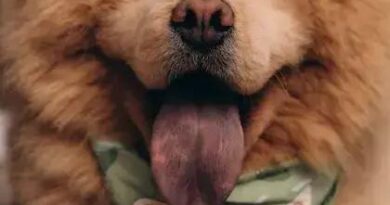What is Late vaccination
Understanding Late Vaccination
Late vaccination refers to the administration of vaccines to dogs beyond the recommended age or schedule. Vaccines are essential for preventing various infectious diseases, and administering them on time is crucial for a dog’s health. Late vaccination can occur for several reasons, including owner oversight, lack of access to veterinary services, or health issues that delay the vaccination process.
Why Vaccination Schedules Matter
Vaccination schedules are designed to provide dogs with immunity at critical developmental stages. Puppies typically receive their first vaccinations between six to eight weeks of age, with boosters following at specific intervals. Late vaccination can leave a dog vulnerable to diseases such as parvovirus, distemper, and rabies, which can have severe health consequences. Understanding the importance of these schedules is vital for every dog owner.
Risks Associated with Late Vaccination
The primary risk of late vaccination is the increased susceptibility to infectious diseases. Puppies that do not receive their vaccinations on time may not develop adequate immunity, leading to potential outbreaks of diseases that could have been easily prevented. Additionally, late vaccination can result in more severe symptoms if a dog contracts a disease, as their immune system may not be prepared to fight it off effectively.
Common Reasons for Delayed Vaccination
There are several reasons why a dog may experience late vaccination. Some owners may not be aware of the vaccination schedule or may underestimate its importance. Others may face financial constraints or lack access to veterinary care. Health issues in the dog, such as illness or allergies, can also delay vaccination, as veterinarians may recommend postponing vaccines until the dog is in better health.
How to Catch Up on Vaccinations
If a dog has missed vaccinations, it is crucial to consult with a veterinarian to create a catch-up schedule. The veterinarian will assess the dog’s health and determine which vaccines are necessary and the appropriate timing for administration. Catching up on vaccinations can help restore the dog’s immunity and protect them from preventable diseases.
Signs Your Dog May Need Vaccination
Dog owners should be vigilant for signs that their pet may need vaccination. Symptoms such as lethargy, loss of appetite, or unusual behavior could indicate an underlying health issue that may require vaccination. Regular veterinary check-ups can help identify these needs early and ensure that vaccinations are administered on time.
The Role of Veterinarians in Vaccination
Veterinarians play a crucial role in managing a dog’s vaccination schedule. They provide guidance on the appropriate vaccines, timing, and any potential side effects. Regular visits to the veterinarian can help ensure that dogs receive their vaccinations on time and maintain their overall health. Building a relationship with a trusted veterinarian is essential for every dog owner.
Understanding Vaccine Types
There are various types of vaccines available for dogs, including core and non-core vaccines. Core vaccines are essential for all dogs, while non-core vaccines are recommended based on the dog’s lifestyle and environment. Understanding the differences between these vaccines can help owners make informed decisions about their dog’s vaccination needs and avoid late vaccination scenarios.
Preventing Late Vaccination
Preventing late vaccination involves proactive planning and education. Dog owners should familiarize themselves with vaccination schedules and set reminders for appointments. Additionally, discussing vaccination plans with veterinarians during routine check-ups can help ensure that dogs receive their vaccinations on time, reducing the risk of late vaccination.
Conclusion: The Importance of Timely Vaccination
Timely vaccination is a critical aspect of responsible dog ownership. Understanding what late vaccination is and its implications can help owners prioritize their dog’s health. By staying informed and proactive, dog owners can ensure their pets receive the necessary vaccinations to lead healthy, happy lives.



